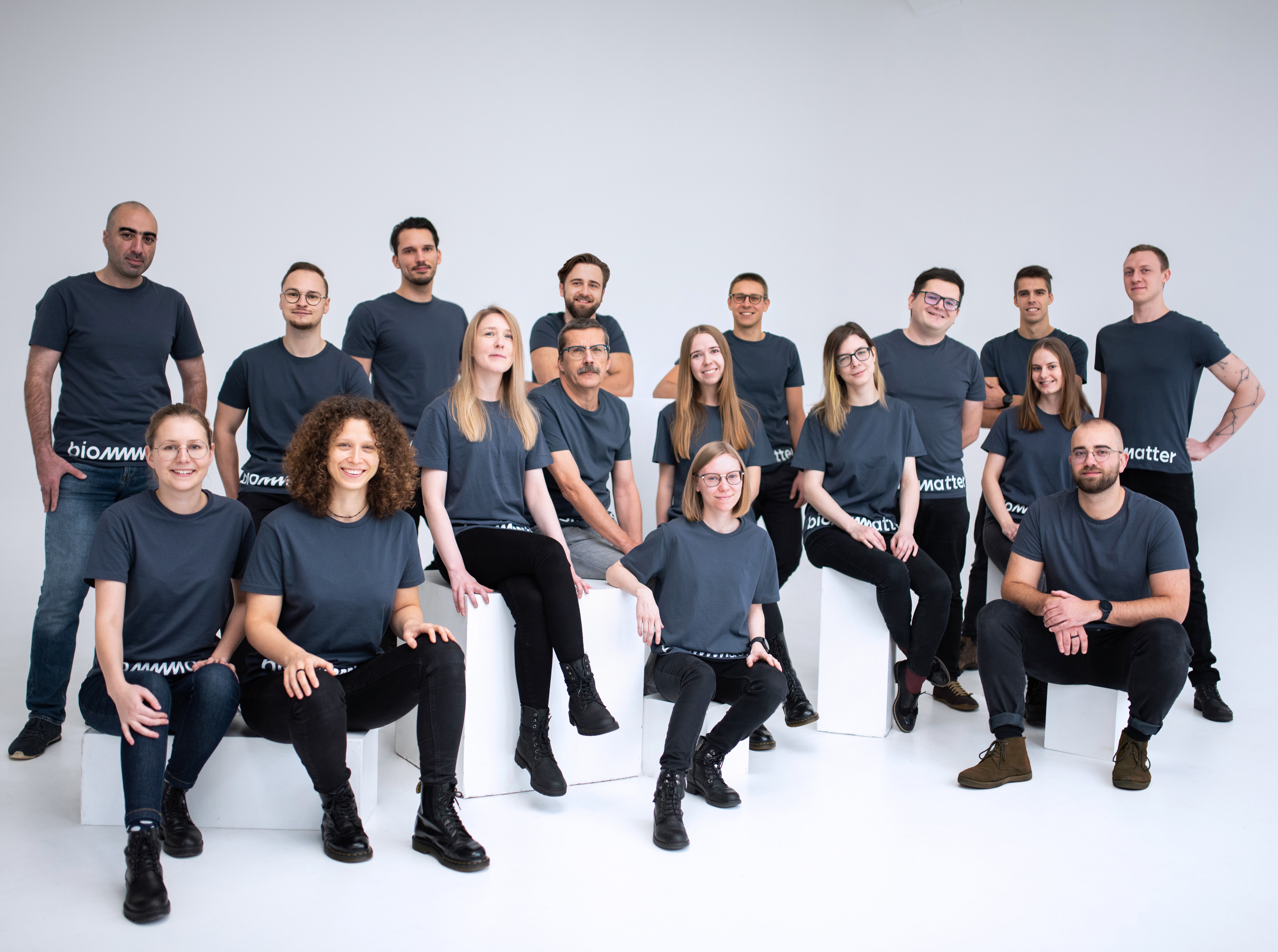Vilnius University (VU) startup Biomatter successfully attracted 6.5 million EUR investment from venture capital funds Inventure and UVC Partners. A leading enzyme engineering company uses artificial intelligence (AI) to create new enzymes that do not exist in nature. According to experts, the application of AI for the development of proteins will be transformational, helping to solve fundamental problems related to their engineering.
The main investors of this stage were also joined by the existing Biomatter investors: the Lithuanian funds Practica Capital and Metaplanet, business angels, and industry experts.
Vilnius University Vice-Rector and Pro-Rector for Research Prof. Edita Sužiedėlienė is happy with the VU start-up's achievements and emphasises that purposeful pursuit of the goal is one of the key things on the company's path.
"Startups originating from the university environment have great potential to generate high-added value products and services. As you know, there are many challenges on the path of a startup, so it is essential not to lack stubbornness and to have a united and goal-oriented team. It is good that the VU startup Biomatter activities have been noticed and appreciated by investors, not for the first time. For the company, this confirms that the products it develops find their place in the market and an impetus for growth and expansion. For the university community, this is a message that the ideas born in the laboratories are relevant and have gone beyond the university's borders, solving the problems of today's society and businesses," says VU Pro-Rector for Research.
Enzymes are key to the future of bioeconomy
As the world’s population continues to grow, there is an urgent need for solutions in medicine, decarbonising chemical manufacturing, and providing healthy, nutritious food more efficiently. Enzymes are the key molecules that can provide the foundation for this transformation to happen. Today, nature-derived enzymes play major roles in various industrial applications, such as in diagnostics (e.g., with DNA polymerases), in gene editing (e.g., with CRISPR-Cas systems), in bio-fuels (e.g., with cellulases), or agriculture (e.g., with phytases). However, each new application requires a new enzyme, and enzyme design remains a tremendous challenge in the field. Current engineering approaches rely on expensive trial-and-error screening and making minor changes to natural enzymes. This process can take months or even years and suffers from inherent limitations. This greatly limits the functions that can be designed and, ultimately, the application scope that can be accessed. The unique technology created by the team at Biomatter allows us to overcome these challenges.
 |
"Enzymes will play a paramount part in the future of the bioeconomy—they are the enabling piece that ultimately allows us to create new molecules, cells, and organisms for the world. The unique enzymes we have successfully developed for our global partners so far demonstrate our capability to go far beyond the existing enzyme improvement paradigm. At Biomatter, we believe that the unlimited capacity to design new enzymes will help to build a better tomorrow for everyone," says Laurynas Karpus, Co-founder and CEO of Biomatter.
Innovative technology for a sustainable future
In 2019, Biomatter unveiled the first fully functional enzymes created with generative AI in Nature Machine Intelligence. This was a paramount milestone for the synthetic biology field, spawning multiple new research and development directions across the globe. Now, Biomatter’s Intelligent Architecture™ platform allows building new enzymes “bottom-up” without the traditional constraints of natural enzymes, greatly expanding the potential scope of their applications.
With the Intelligent Architecture™ platform, Biomatter rapidly creates tailored enzymes for multiple industries, including chemical biomanufacturing, agriculture, food, and life sciences. It reduces the development cycle from years to weeks.
"AI-powered protein design is currently one of the most exciting and dynamic areas for venture capital. Biomatter's innovative approach to designing enzymes from scratch enables them to go beyond the limits of natural enzymes, leading to breakthroughs in biotech. We are deeply impressed by the team and convinced that Biomatter is the trailblazer for AI-based protein design," says Dr. Oliver Schoppe, Principal at UVC Partners.
With a rapidly growing global customer base (including Thermo Fisher Scientific, BASF, and Neogen), the new investment round will enable Biomatter to further expand the unique capabilities of its platform and create de novo enzymes.
“The application of AI in protein design will be transformational, addressing major current design limitations. Early results from projects with global companies show that Biomatter’s technology is dramatically accelerating innovation in this transformative field, reshaping the implementation of enzymes in incumbent and new structures. The team is rapidly expanding its platform to meet high customer demand,"says Kevin Lösch, Investment Manager at Inventure.
Text prepared according to information from Biomatter.
Photo by Gabija Monika Vainiūtė
